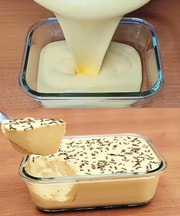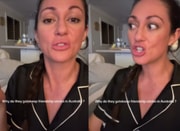Dermatologists disapprove of the latest skincare trend – here’s why
- Replies 6
While there’s no shortage of life-changing tips online, there are just as many reasons why everything you see on the internet should be fact-checked.
Among the list of TikTok trends to ignore this week is a Korean beauty craze that has taken the social media platform by storm: ‘slugging’.
Slugging involves smearing your face with generous amounts of Vasoline (petroleum jelly) before getting a good night’s sleep, promising to leave you with a radiant complexion and plump skin the following morning.
Hundreds of content creators have encouraged users to give the beauty tip a go, regardless of their skin type.


Beauty influencers have vouched for the Korean beauty craze. Source: @imhannacho
UK pharmacy Boots even claimed that it’s perfect for oily skin. In the video, a spokesperson can be heard saying: 'Slugging is the practice of smearing a heavy layer of occlusive-like petroleum jelly on the face at night before you go to bed.’
'You would be right to assume that it’s pretty messy… But it’s all worth it as it supports the skin's regeneration process, making for a healthy glow come morning.’
'It’s a great option for oilier skin.' they continued.
Source: @abbeyyung
Although the tip has earned the endorsement of pharmacies and skincare brands, don’t be fooled!
Yes, thick ointments such as petroleum jelly are formulated to lock in moisture by preventing the skin from drying out overnight but experts at the Beth Israel Deaconess Medical Centre in Boston warn that it’s the last thing anyone would want on their face.
'Slugging entails slathering a petrolatum-based ointment on the skin as the last step in your evening skincare routine and is currently trending on TikTok. Due to its occlusive nature, slugging has the potential to cause acne.'
The trend, which debuted on Reddit in 2014 and recently resurfaced, claimed to help keep the face moisturised, particularly for people with skin conditions like eczema.
However, petroleum jelly can also block the natural oils in the skin from being released. Then, it ends up being mixed with dead skin cells which in turn clogs up pores. This can lead to acne, blackheads, and pimples.
It is especially harmful to people with oily skin as they are already more prone to acne.
Source: @taliaafawaz
Dr Anjali Mahto, Consultant Dermatologist and British Skin Foundation spokesperson, warned: 'I would not recommend slugging for acne-prone skin due to the risk of it occluding pores. There are far superior moisturising agents for acne-prone skin which are less likely to be comedogenic.'
The BIDMC team added that slugging may 'unintentionally increase the potency of topical medications, including steroids, when layered’.
This is because steroid creams can be trapped, forcing the skin to absorb them deeper and increasing the risk of them reaching the bloodstream.
It can result in rare side effects like Cushing's syndrome–when the body produces too much of the stress hormone cortisol or adrenal suppression, wherein the opposite occurs.


Do NOT try this beauty tip! Source: @lenamaiah
A medical student, Kyla Pagani, along with her colleagues analysed the 50 most popular English language videos that featured slugging on TikTok. Some of the videos were uploaded by health care providers, as well as 'beauty influencers' with over 5,000 followers.
They studied how well each of the top videos discussed the pros and cons of taking part in the beauty trend. They discovered that only about a fifth of all the clips mentioned the potential risks of the routine, such as acne and making steroid creams more powerful.
The researchers said that their findings encompassed the dangers of beauty trends on TikTok. Millions of social media users are exposed to potentially harmful practices daily without being made aware of the risks.
What are your thoughts about ‘slugging’? Have you heard about the beauty trend before reading this article? Dare we ask how you keep your skin looking its best? Let us know in the comments!
Curious about what another board-certified dermatologist thinks of the trend? Watch the video below:
Source: @drwhitneybowe
Among the list of TikTok trends to ignore this week is a Korean beauty craze that has taken the social media platform by storm: ‘slugging’.
Slugging involves smearing your face with generous amounts of Vasoline (petroleum jelly) before getting a good night’s sleep, promising to leave you with a radiant complexion and plump skin the following morning.
Hundreds of content creators have encouraged users to give the beauty tip a go, regardless of their skin type.
Beauty influencers have vouched for the Korean beauty craze. Source: @imhannacho
UK pharmacy Boots even claimed that it’s perfect for oily skin. In the video, a spokesperson can be heard saying: 'Slugging is the practice of smearing a heavy layer of occlusive-like petroleum jelly on the face at night before you go to bed.’
'You would be right to assume that it’s pretty messy… But it’s all worth it as it supports the skin's regeneration process, making for a healthy glow come morning.’
'It’s a great option for oilier skin.' they continued.
Source: @abbeyyung
Although the tip has earned the endorsement of pharmacies and skincare brands, don’t be fooled!
Yes, thick ointments such as petroleum jelly are formulated to lock in moisture by preventing the skin from drying out overnight but experts at the Beth Israel Deaconess Medical Centre in Boston warn that it’s the last thing anyone would want on their face.
'Slugging entails slathering a petrolatum-based ointment on the skin as the last step in your evening skincare routine and is currently trending on TikTok. Due to its occlusive nature, slugging has the potential to cause acne.'
The trend, which debuted on Reddit in 2014 and recently resurfaced, claimed to help keep the face moisturised, particularly for people with skin conditions like eczema.
However, petroleum jelly can also block the natural oils in the skin from being released. Then, it ends up being mixed with dead skin cells which in turn clogs up pores. This can lead to acne, blackheads, and pimples.
It is especially harmful to people with oily skin as they are already more prone to acne.
Source: @taliaafawaz
Dr Anjali Mahto, Consultant Dermatologist and British Skin Foundation spokesperson, warned: 'I would not recommend slugging for acne-prone skin due to the risk of it occluding pores. There are far superior moisturising agents for acne-prone skin which are less likely to be comedogenic.'
The BIDMC team added that slugging may 'unintentionally increase the potency of topical medications, including steroids, when layered’.
This is because steroid creams can be trapped, forcing the skin to absorb them deeper and increasing the risk of them reaching the bloodstream.
It can result in rare side effects like Cushing's syndrome–when the body produces too much of the stress hormone cortisol or adrenal suppression, wherein the opposite occurs.
Do NOT try this beauty tip! Source: @lenamaiah
A medical student, Kyla Pagani, along with her colleagues analysed the 50 most popular English language videos that featured slugging on TikTok. Some of the videos were uploaded by health care providers, as well as 'beauty influencers' with over 5,000 followers.
They studied how well each of the top videos discussed the pros and cons of taking part in the beauty trend. They discovered that only about a fifth of all the clips mentioned the potential risks of the routine, such as acne and making steroid creams more powerful.
The researchers said that their findings encompassed the dangers of beauty trends on TikTok. Millions of social media users are exposed to potentially harmful practices daily without being made aware of the risks.
What are your thoughts about ‘slugging’? Have you heard about the beauty trend before reading this article? Dare we ask how you keep your skin looking its best? Let us know in the comments!
Curious about what another board-certified dermatologist thinks of the trend? Watch the video below:
Source: @drwhitneybowe







